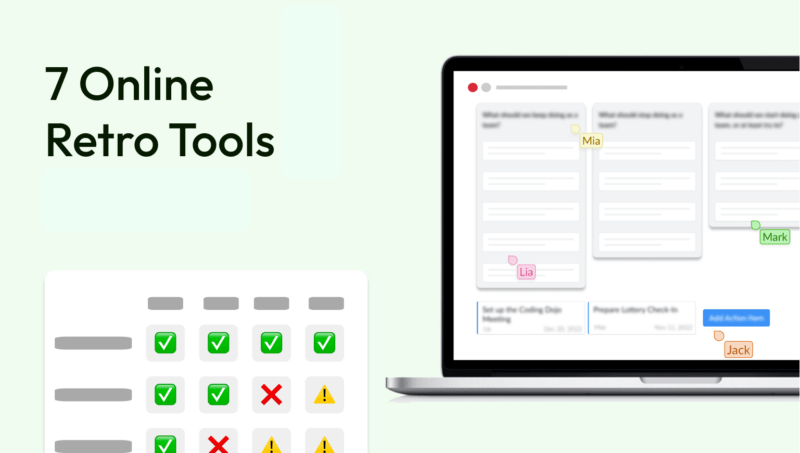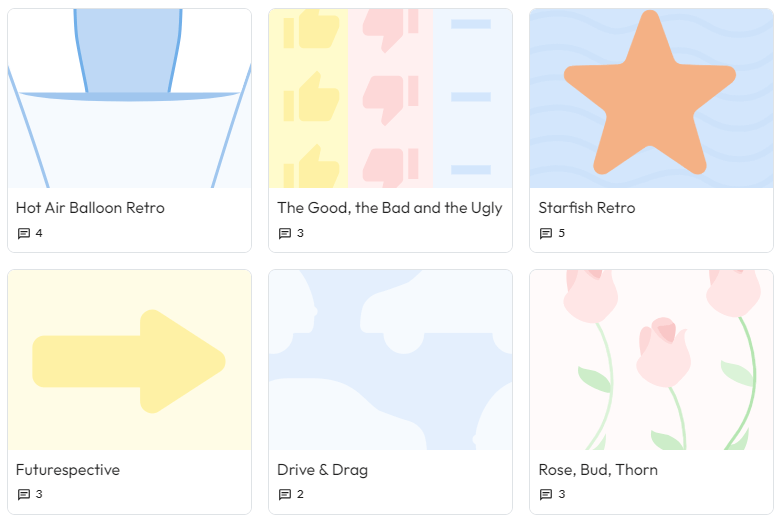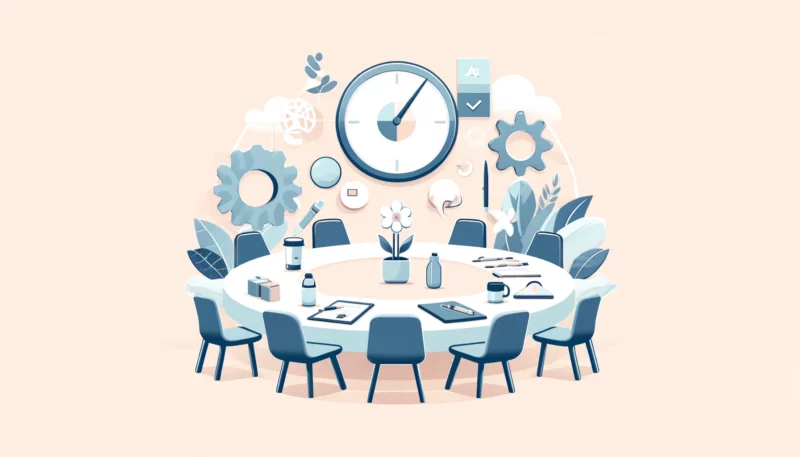Psychological background
There is hardly a technique in psychology that is more suitable to provide more motivation: good goals. In some companies it is still common to say: “Do your best.” It is proven: Specific, ambitious goals almost always lead to higher performance.
In order to set a good goal, you should first consider the SMART formula, and secondly the difference between learning and performance goals. If that doesn't tell you anything, take a look our blog article about it.
For discussion in the retro
So, after goals are so important, where do you stand here? Do you notice that SMART rule and the difference between Learning and performance goals?
To help you reflect on your goals in the team and possibly revise them, help you our items (see also category “team goals” in our item pool):
- My goals are aligned with the goals of my colleagues.
- Our current team goal is divided into enough intermediate goals.
- We work together towards one or more clear goals.
If you get the retro feedback from the team in advance, you have an “unbiased” opinion of the team. So you can answer the following questions validly: Do you have a goal - and if so, do all have the same goal in mind? Is it divided into enough intermediate destinations? Does everyone have a clearly defined, measurable sub-goal? Are the sub-goals coordinated?
The retro serves to create more clarity regarding your goals in the team and to ensure that you have set yourself “good goals” (in the sense of the mentioned criteria).
If you are dissatisfied with your goals, you can set a new goal. You can do exercise 1 for this. If you already have a good goal (or after Exercise 1), you can then perform Exercise 2 and do a Pre-Mortem if necessary.
Exercise 1: Set a new goal
The following procedure can serve as a basis for defining a new or better goal (duration: approx. 30 min.):
- 5 minutes: According to the Delphi method: Each participant individually thinks about a new or better goal. Before that, you can point out that this goal can also be defined independently of the “work goals”, that is, it can refer to soft factors: communication, readiness for conflict or knowledge exchange.
- Example: Everyone will have lunch 1: 1 together with everyone within the next month. You talk about current topics and challenges. (This will likely have a positive effect on various targets.)
- 10 minutes: In the next step, the goals are discussed in small groups and, for example, two or three suggestions are agreed for each small group.
- 2 minutes per group: Now each small group presents the two goals together. These are recorded in writing for everyone to see.
- 10 minutes: The goals are prioritized - e.g. by sticking dots - and a goal is agreed.
It is now of course central that this goal is addressed regularly (for example in retro) and achieved as far as possible so that the team develops self-efficacy here.
That is also the reason why it is not advisable to set several ambitious goals: It is better to start small. The opportunity to set multiple goals is coming again. Because you should set new good goals regularly (for example every 3 months), so as not to plan ahead.
When you're done with this, you can add another one to this exercise: Pre-Mortem.
Exercise 2: Pre-Mortem
Many people always see the danger and the risk. The pre-mortem method takes advantage of this ability and converts these concerns into productive ideas. In the case of a pre-mortem, the following question is asked:
- If you didn't achieve our goal, what would that be?
The Delphi method can be used in an equivalent manner (see Exercise 1). In this way (first individually and then in small groups) risk factors can be collected and discussed. These can then be continuously reviewed in the retros. So you have a perfect basis to think of ways to overcome the hurdles.
You can find more information about pre-mortem here in our blog text.
So then. Good luck reflecting on one of the most important factors for successful teams. The next important factor - Team communication - can still follow now.








